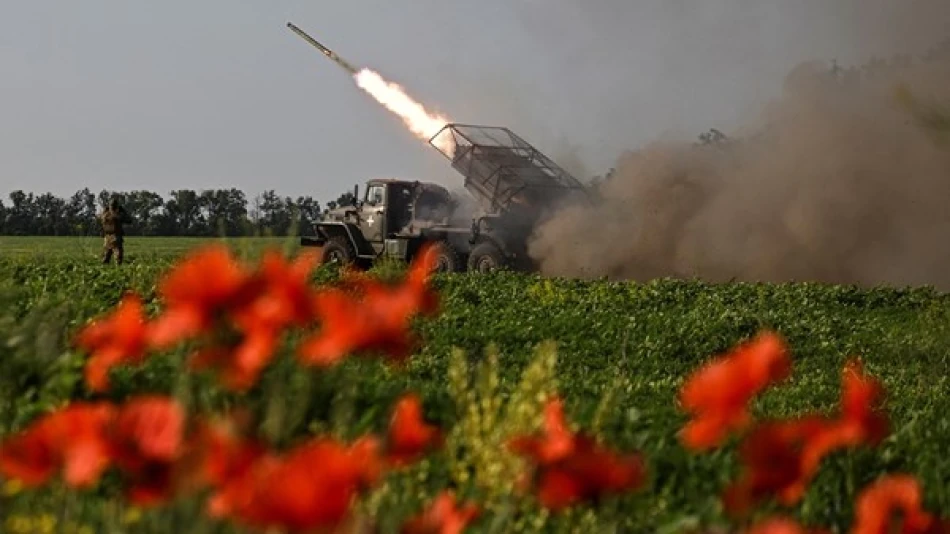
European Nations Urge Peaceful Resolution to the Ukraine Crisis
Nordic-Baltic Alliance Reinforces Ukraine Support as Trump-Putin Summit Looms
Eight Nordic and Baltic nations have issued a unified statement reaffirming their commitment to Ukraine, just days after President Donald Trump announced plans for direct talks with Vladimir Putin on August 15 in Alaska. The coordinated diplomatic message signals regional concerns about potential shifts in Western support as the conflict enters its fourth year.
Strategic Timing of the Joint Declaration
The leaders of Denmark, Estonia, Finland, Iceland, Latvia, Lithuania, Norway, and Sweden released their statement on Sunday, emphasizing continued backing for measures to assist Ukraine. The timing appears deliberate, coming shortly after Trump's Friday announcement of the planned Alaska summit with Putin.
This represents a significant diplomatic moment for the Nordic-Baltic region, which has historically served as a buffer zone between Western Europe and Russia. These nations understand firsthand the implications of Russian territorial ambitions, particularly the three Baltic states that regained independence from Soviet rule in 1991.
Trump's Alaska Gambit: High-Stakes Diplomacy
Bilateral Focus Raises Questions
Trump's choice of Alaska as the meeting venue carries symbolic weight—neutral American territory that once belonged to Russia. A White House official confirmed that while Trump remains open to Ukrainian President Volodymyr Zelensky's participation, current preparations focus solely on a bilateral US-Russia meeting.
This approach marks a departure from the multilateral diplomatic framework that has characterized Western responses to the Ukraine crisis. The exclusion of Zelensky from initial planning raises concerns among European allies about Ukraine's voice in determining its own future.
Historical Precedent and Risks
The Alaska summit echoes Cold War-era superpower diplomacy, reminiscent of Reagan-Gorbachev meetings in the 1980s. However, the current context differs significantly—Ukraine represents a sovereign nation fighting for territorial integrity, not a proxy conflict between ideological blocs.
Regional Security Implications
The Nordic-Baltic statement reflects deeper anxieties about regional security architecture. Finland and Sweden's recent NATO membership applications, driven partly by the Ukraine conflict, demonstrate how the war has reshaped European security calculations.
Estonia, Latvia, and Lithuania—NATO members since 2004—have consistently advocated for robust support to Ukraine, viewing it as essential to their own security. Their inclusion in this joint statement underscores the existential nature of the conflict for former Soviet territories.
Economic and Military Support Continues
The eight nations have collectively provided billions in military and humanitarian aid to Ukraine. Norway, despite not being an EU member, has been among the largest per-capita contributors. Sweden's defense industry has supplied crucial artillery systems, while Baltic states have donated significant portions of their military equipment.
This sustained commitment represents both moral solidarity and strategic calculation—supporting Ukraine's resistance serves these nations' long-term security interests by demonstrating the costs of territorial aggression.
Diplomatic Chess Game Intensifies
The Nordic-Baltic declaration effectively creates diplomatic pressure on the upcoming Trump-Putin meeting. By publicly reaffirming support for Ukraine, these nations signal that any agreement reached without Ukrainian consent or input would face European resistance.
This dynamic reflects broader tensions within the Western alliance about the appropriate balance between diplomatic engagement with Russia and unwavering support for Ukraine's territorial integrity. The coming weeks will test whether this unified Nordic-Baltic position influences the Alaska summit's agenda and outcomes.
Most Viewed News

 Layla Al Mansoori
Layla Al Mansoori






